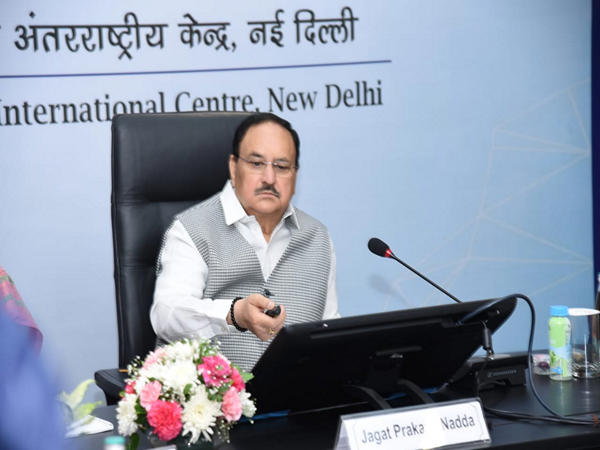84% healthcare facilities likely to increase budget on digital solutions: Grant Thornton Bharat-AHPI survey
Ensuring secure network to prevent cyber threats and data privacy is of utmost importance for hospitals Advance technology solutions need to be leveraged for better healthcare outcome, patient engagement, robust governance, mitigate business risks,

- Ensuring secure network to prevent cyber threats and data privacy is of utmost importance for hospitals
- Advance technology solutions need to be leveraged for better healthcare outcome, patient engagement, robust governance, mitigate business risks, operational excellence and compliance management,
- A majority of facilities plan to leverage 5G to drive healthcare outcomes
Delhi: The increasing disease burden, spiralling costs and demand for quality healthcare services have placed tremendous pressure on healthcare resources. As healthcare providers strive to bring in operational efficiencies, enhance service delivery and improve health outcomes, technology is finding greater application across the value chain. With this background, Grant Thornton Bharat and Association of Healthcare Providers (India) (AHPI) have tried to understand the healthcare providers’ and practitioners’ perspectives on leveraging technology in its report called ‘Technology transformation for future-ready healthcare.’ The survey-based report showcased that 84% of respondents plan to significantly increase the budget on digital solutions and technology initiatives in the next 12 months.
“India has successfully embraced the digital mindset in the last decade and adopted digital payments and electronic currency. Our survey also reflects this sentiment, with more than 80% of the respondents admitting they wanted to enhance their digital and IT infrastructure spending budget to drive better healthcare outcome, robust governance, operational excellence and ensure compliances. The government is also giving impetus to healthtech adoption through various schemes. As India moves ahead with the agenda of universal health coverage, technology will be a crucial lever to drive accessibility, availability and affordability,” said Bhanu Prakash Kalmath S J, Partner and Healthcare and Life Sciences sector leader.
According to the survey report, while planned technology spending is encouraging, cyber threats and data privacy concerns loom over. The hospital database contains confidential patient information, including medical diagnoses, treatment records and insurance information. This is a huge area of improvement and focus since, as per the survey, 66% healthcare professionals and leaders are not confident that their technology infrastructure is sufficient to prevent cyber threats. The integration of 5G across supply chains can transform this, help ease operations and lead to seamless adoption of technology-enabled insurance-related services, device manufacturing and clinical trials.
The government has been optimistic on the prospects of telemedicine, and its free service – eSanjeevani – has witnessed success. It also launched Ayushman Bharat Digital Mission (ABDM) with a vision to create a common digital platform. Therefore, the report also touches upon investment in telemedicine infrastructure to reach a wider population, drive efficiency, enhance the patient experience, and maximise revenue. Furthermore, hospitals need to enroll in ABDM to develop an integrated digital health infrastructure and bridge the gaps in the ecosystem. The report also addresses the challenges pertaining to ABDM, which need to be taken in account for accelerating the enrolment in the mission.
Key highlights from the report:
- 84% respondents increase the budget on digital solutions and technology initiatives in the next 12 months
- 66% are not confident that their technology infrastructure is sufficient to prevent cyber threats
- 40% feel their technology infrastructure can ensure patient data privacy
- 48% respondents have seen an operational efficiency gain of up to 20%
- 58% have not leveraged technology to monitor compliances
- While 62% have implemented EMR, 54% respondents do not have EMR integrated with billing systems
- 50%+ have highlighted that Tech implementation/integration and data privacy are the two key challenges to enroll to ABDM
Telemedicine revenue is less than 5% for 88% of the respondents






